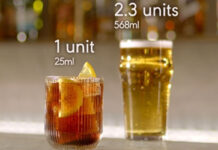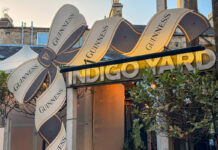Operators advised to keep customers in mind when choosing whiskies
Whether it’s single malt or blends, Scotch or bourbon, the secret to a successful whisky range is tailoring the selection to your outlet.
Whisky firms told SLTN that a city centre bar will often have an entirely different range to a country pub and, ultimately, what a licensee displays on their gantry should be driven by their clientele.

Phil Keene, on-trade sales director at Whyte & Mackay, said: “Understanding your customer is the most fundamental part of selecting a whisky range, as this insight helps you understand the level of disposable income of patrons, what makes them tick and what they like to drink.
“Based on this, it is advisable for outlets to stock a wide range of whiskies covering the various flavour profiles and styles of whisky in order to accommodate consumer preferences.”
The type and volume of customers coming into the pub will also influence the number and type of whiskies on the back-bar.
“City centre bars tend to have high footfall and can attract varying categories of customers,” said Keene.
“Whisky is growing internationally and in general malt whiskies, luxury and limited editions tend to be popular with tourists visiting from overseas.
“With that in mind a country pub that is frequented by tourist trade should ensure they have a quality whisky range behind the bar.”
James MacTaggart, master distiller at Isle of Arran Distillery, said city dwellers appreciate the option of being able to try something new.
He said: “A city centre premises will inevitably attract a wide range of consumers so even a small whisky range should offer something for everyone.
“This doesn’t mean that you have to stick with the more recognisable brands.
“City dwellers appreciate the option to try something new so focus instead on stocking a cross section of flavour, depths and ages – from smoky, peated malts to more mellow blends.”
Jim Grierson, o n-trade sales director at Maxxium UK, whose portfolio includes The Famous Grouse, The Macallan, Jim Beam and Maker’s Mark, believes quality is key.
n-trade sales director at Maxxium UK, whose portfolio includes The Famous Grouse, The Macallan, Jim Beam and Maker’s Mark, believes quality is key.
“For any outlet looking to build a small whisky range, the focus must be on quality,” he said.
“By stocking a small but well-balanced selection of premium whiskies, pubs and bars can ensure that the full flavour range is covered.
“This will allow customers to select their favourite whisky whilst also enticing consumers to try an expression for the first time.
“Stocking four or more premium blends or single malt whiskies in a pub or bar can increase its rate of sale as it encourages the consumer to experiment across the wide flavour spectrum that exists within the whisky category.”
The increasing number of whiskies emerging from international markets means that pub and bar customers are also interested in whiskies from overseas.
Keene at Whyte & Mackay said that, while tourist-heavy outlets may want to focus on Scotch whiskies, other outlets should consider spirits from further afield as well.
Any specialist whisky bar, he said, “would pride itself on having a large and varied repertoire” of whiskies.
But regardless of whether customers are tourists or locals, whisky cocktails can be another good way to boost sales over summer, according to Faith Holland, head of GB on-trade category development at Diageo – whose brands include Johnnie Walker and Bulleit Bourbon.
Holland said: “Adding cocktails to the menu can increase spirit sales by 36%, offering a real opportunity for licensees to surprise and delight summer customers with an inspiring new drinks offer.”























